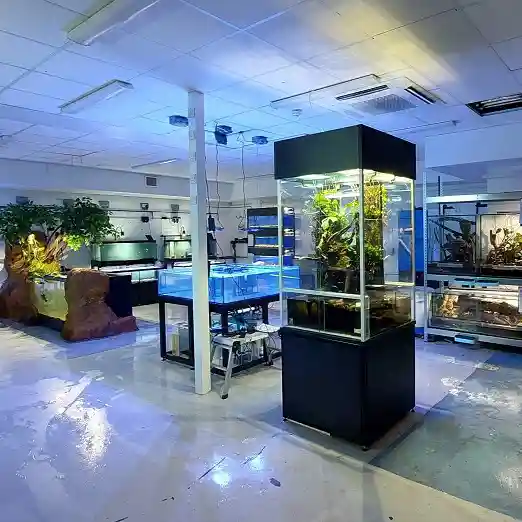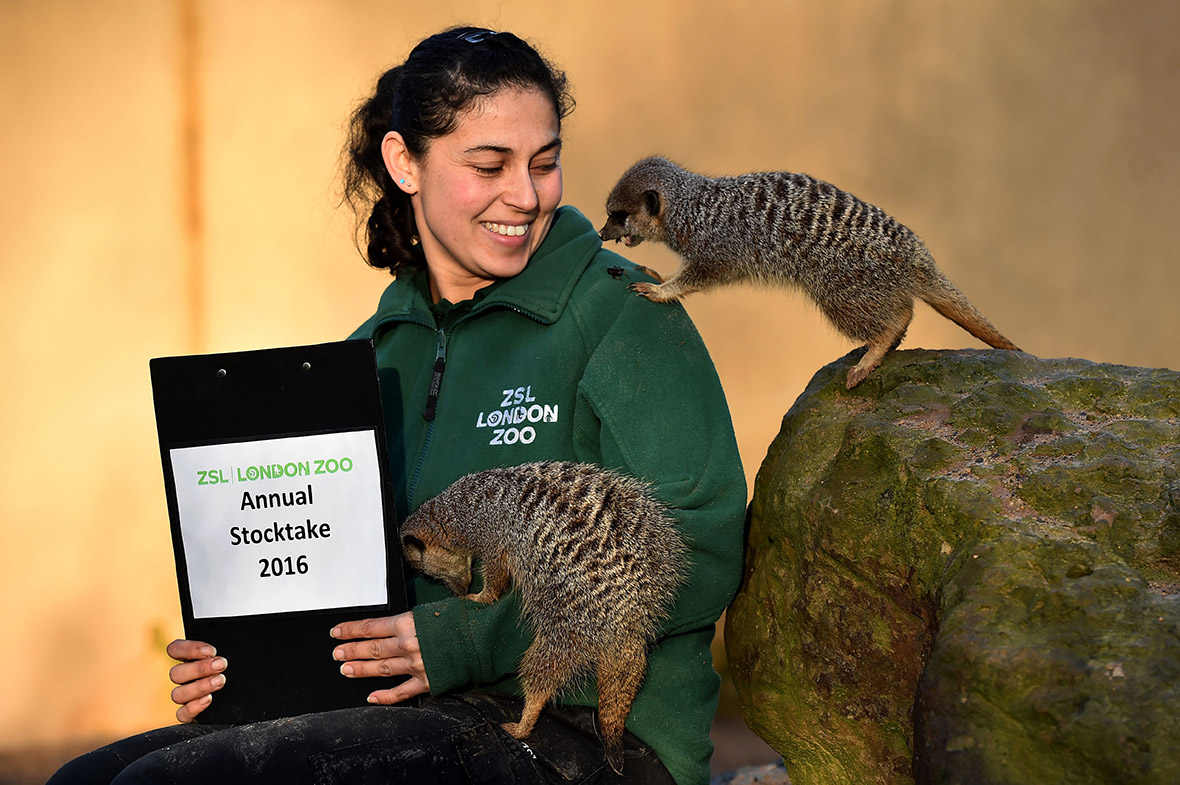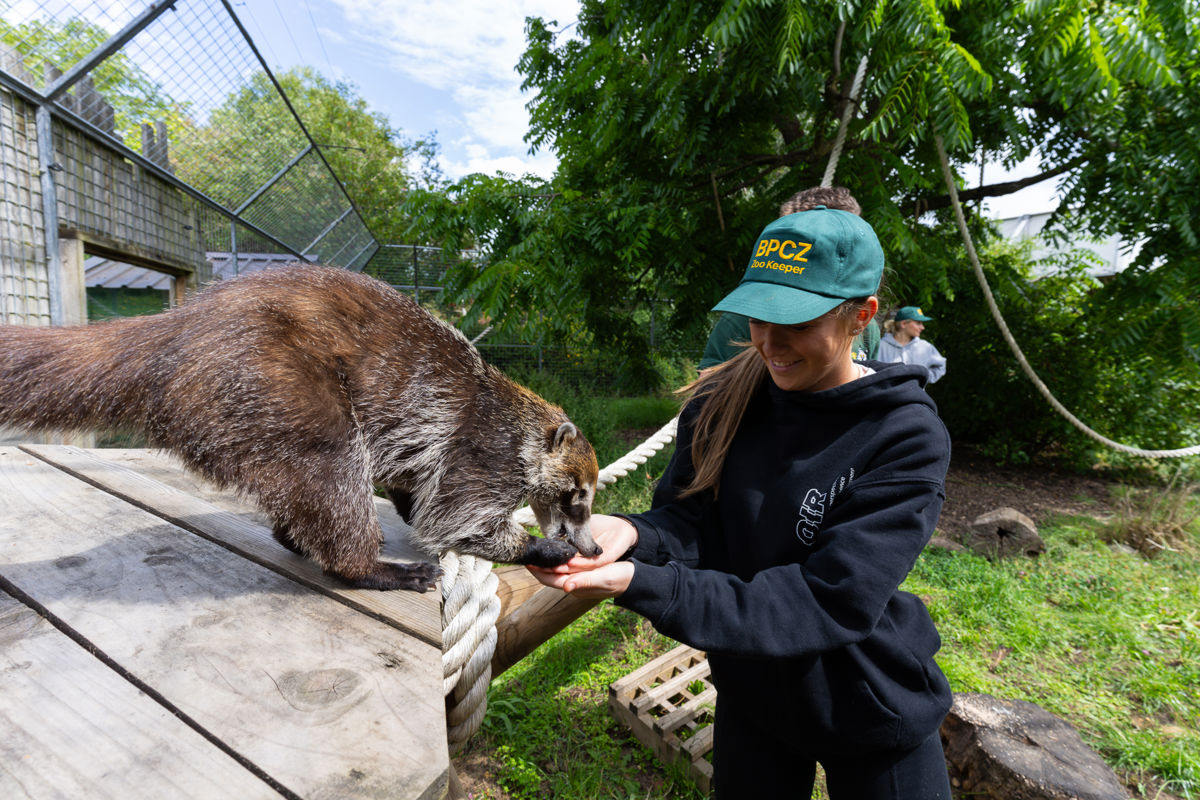How To Become A Zoo Keeper?
페이지 정보
작성자 Madeleine 댓글 0건 조회 16회 작성일 25-02-05 22:35본문
"The greatness of a country and its ethical development can be evaluated by the way its animals are dealt with." - Mahatma Gandhi
Do you enjoy animals and dream of operating in a zoo? Zoo keepers are key in securing wildlife and taking care of animals. At locations like the Zoological Society of London (ZSL), over 20,000 animals get the care they need from .
To become a zoo keeper, you need effort, education, and a love for animals. This job is interesting, letting you deal with numerous species and aid with important conservation work. If you're into wildlife or animal welfare, zookeeping might be perfect for you.

Starting your zoo keeper profession implies learning what's needed. This guide will cover education, experience, and more. It's all you need to understand to begin a fulfilling zookeeping profession.
Comprehending the Role of a Zookeeper
Exploring what a zookeeper does reveals a role full of obstacles and benefits. They focus on animal welfare and preservation. Zookeepers strive to keep animals healthy and delighted in their care.
Daily Responsibilities and Tasks
A zookeeper's day is filled with crucial tasks:
- Preparing meals that satisfy each animal's dietary requirements
- Cleaning up enclosures to keep them clean and safe
- Supervising animal health and behaviour
- Offering medicines and treatments as needed
- Creating activities to keep animals mentally sharp
Working Environment and Conditions
Zookeepers work outside in all type of weather condition. They manage both indoor and outdoor areas. The task needs being healthy and able to deal with the needs of taking care of animals.
"Being a zookeeper is more than a job - it's an enthusiastic commitment to animal care and preservation."
Kinds of Animals and Specialisations
Zookeepers can specialise in many animal groups:
- Primates
- Big cats
- Marine mammals
- Reptiles
- Birds
Your role may include dealing with 2-5 various animal types. This needs a lot of understanding and the capability to adapt.
Important Skills and Personal Qualities for Zoo Keeping
To be a top zookeeper, you need more than just a love for animals. Your task will be tough and require you to handle animals and individuals well. You'll likewise require to understand animal behaviour.
What zoos search for in people consists of:
- Exceptional persistence and psychological durability
- Strong physical fitness and stamina
- Eager observation skills
- Ability to stay calm under pressure
- High level of compassion towards animals
Getting hands-on experience is crucial to mastering this role. You'll require to reveal:
- Advanced understanding of animal care strategies
- Proficiency in animal handling and security protocols
- Effective communication with both animals and human visitors
"An excellent zookeeper links science, empathy, and preservation in every interaction with animals."
You ought to know about animal nutrition, behaviour, and fundamental veterinarian care. Most zookeepers learn through training, volunteering, and continuous learning.
Zookeeper work is not just a task. It's a huge dedication to teaching about wildlife and helping preservation. Your passion and hard work will make you stand apart in this satisfying career.
How to Become a Zoo Keeper
Starting a career as a zookeeper requires careful preparation and education. You should first comprehend the educational requirements and training paths. These will turn your love for animals into a job.
Educational Requirements
To be a terrific zookeeper, you require a strong scholastic base. The majority of tasks look for particular credentials:
- At least 5 GCSEs at grade 4 or above, consisting of English, zookeeper maths, and science
- A levels or college qualifications
- A college degree in biology or animal science
- Level 3 Diploma in Animal Management
Essential Certifications
Getting special accreditations can actually assist you in your zookeeper profession. Crucial ones include:
- Diploma in Management of Zoo and Aquarium Animals (DMZAA)
- Zookeeping Level 3 Diploma (RQF)
- Animal handling certificates
- Emergency treatment credentials
Training Programs and Apprenticeships
Getting hands-on experience is type in zookeeper training. Numerous locations use great possibilities:
- Unpaid apprenticeships at wildlife parks
- Internship programs at popular zoos
- Practical training at locations like Colchester Zoo and Dartmoor Zoo
- Offering to get real-world abilities
Pro tip: Create an in-depth portfolio to show your animal care skills. It will help you in job applications.
Building Relevant Experience in Animal Care
Acquiring hands-on experience is key for those wanting to be zookeepers. The job is very competitive. So, it's crucial to begin constructing a strong base in animal care.
Your journey begins with discovering methods to work directly with animals. This is a tactical action.

"Experience is the best teacher in animal care" - Wildlife Conservation Experts
Here work methods to acquire experience working with animals:
- Volunteer at local animal shelters to establish fundamental animal handling skills
- Look for zookeeper internships at wildlife rehabilitation centres
- Check out part-time positions at veterinary centers
- Contact your local zoo for possible volunteer chances
Offering is a fantastic method to learn about animal behaviour and care. Many zoos and animal shelters are searching for individuals who wish to discover. These locations offer great opportunities to get hands-on experience and show your devotion to animal welfare.
Here are some pointers to take advantage of your experience:
- Keep a record of your abilities and interactions
- Connect with experts in animal care
- Ask for references and letters of recommendation
- Stay relentless and show your real passion
Keep in mind, practical experience makes you stand out in the zookeeping world. Every time you deal with animals, you learn more. This increases your opportunities of getting a job in animal care.
Profession Pathways and Professional Development
Starting a profession as a zookeeper is amazing. It provides many possibilities to grow and specialise. Your journey starts with comprehending the different courses in this field.
Entry-Level Positions
Entry-level tasks in zookeeping are an excellent start. They provide you hands-on experience. Zoos try to find candidates with:
- Level 2 Diploma in Animal Care (minimum certification)
- GCSEs in English and a scientific subject
- Volunteer experience at animal shelters or farms
Career Progression Opportunities
As you acquire experience, your profession can grow. You can move up to:
- Junior Keeper
- Senior Keeper
- Group Leader
- Professional Roles
"Continuous knowing and practical experience are crucial to advancing in your zookeeping career."
Specialised Roles
You can likewise choose special locations like:
- Conservation breeding programs
- Animal training
- Wildlife research study
- Educational outreach
About 25% of zookeepers get advanced degrees in zoology or animal preservation. Getting Level 4 credentials can enhance your possibilities for senior roles and research.

Working Hours and Physical Demands
Ending up being a zookeeper indicates you'll work more than just routine hours. You'll face tough physical challenges and need to be versatile, consisting of weekends and holidays. Zoos are open every day, so you'll typically work when others relax.
"Zoo keeping is not a typical 9-to-5 task-- it's a lifestyle of devoted animal care and dedication."
This job is physically demanding. You'll work outside in any weather, raising heavy items over 50 pounds. Your jobs may consist of:
- Early morning feeding schedules
- Cleaning animal enclosures
- Preparing specialised diets
- Performing health checks
- Maintaining complex habitats
Shifts can start as early as 5 AM and go late into the night. You'll be on your feet the majority of the time, moving between animal zones. Weekends and holidays belong to the job, needing great deals of stamina and devotion.
In spite of the obstacles, this job has fantastic rewards. You'll grow strong, both physically and mentally. You'll also make incredible connections with unbelievable animals.

Health and Safety Considerations
Being a zookeeper includes its own set of challenges. It's crucial to understand how to keep both animals and personnel safe. This means following stringent health and safety guidelines.
Zookeepers deal with a distinct environment where security is key. Research studies show that health and wellness are now as essential as the zoo's main work.
Threat Management Strategies
There are numerous methods to handle threats in zoos:

- Daily checks of animal enclosures for threats
- Counting animals at the start and end of shifts
- Watching how visitors act near animals
- Being ready for emergencies
Animal Handling Safety Protocols
Understanding which animals are most unsafe is vital. Big animals like rhinos can be extremely risky. There have actually been cases where zookeepers got seriously injured.
Safety isn't almost using equipment - it's about understanding animal behaviour and staying alert.
Personal Protective Equipment
Zookeepers require to use the best equipment, consisting of:
- Special gloves for handling animals
- Strong shoes for grip and safety
- Clothing that secures against bacteria
Getting vaccinated versus diseases like hepatitis B and rabies is also key. It helps keep zookeepers healthy in their tough job.
Income Expectations and Job Market
Thinking of a career in zoo keeping? It's crucial to learn about incomes and the task market. The field is growing, with more opportunities in the UK.
Let's look at what zoo keepers can make at different stages:
- Entry-level zookeepers begin at about ₤ 14,000 a year
- Qualified ones make between ₤ 16,000 and ₤ 22,000
- Senior zookeepers can make as much as ₤ 30,000 or more
The task outlook for zoo keepers is great. The sector is anticipated to grow by 5% in the UK by 2029. This suggests around 3,910 brand-new tasks will be available.
"The Association of Zoos and Aquariums supports expert growth for zoo keepers," a report says.
Wages vary based on a number of things:
- Experience level
- Expertise
- Where you work
- The zoo's size and type
While the pay might not be high, the delight of dealing with animals is valuable. The average income is around ₤ 17,000. However, overall earnings can be in between ₤ 13,000 and ₤ 27,000 a year.
Conclusion
Beginning a career in animal care is an interesting journey. It requires devotion, passion, and a love for learning. With over 350 zoos and wildlife locations in the UK, there are numerous job chances. You'll get to deal with incredible animals and assist safeguard wildlife.
To be a zoo keeper, you require more than just love for animals. You need to have a mutual understanding of biology, have the ability to interact well, and constantly wish to learn more. You'll gain hands-on experience, learn about animal welfare, and develop a deep regard for nature. About 3,000 individuals in the UK have actually discovered satisfying careers in this field.
Your success in zoo keeping comes from mixing science with a love for animals. Whether you're interested in mammals, birds, or marine life, this task lets you assist with preservation. Every day will bring brand-new difficulties and finding out chances that will improve your skills and knowledge.
If you love animals and want to help secure wildlife, zoo keeping might be for you. Take on the challenge, remain curious, and turn your enthusiasm for animals into a gratifying career.
- 이전글Большой Куш - это реально 25.02.05
- 다음글다인카지노 최신링크 - 다인카지노 대체 들어가는곳 - 다인카지노 접속 - 다인카지노 25.02.05
댓글목록
등록된 댓글이 없습니다.